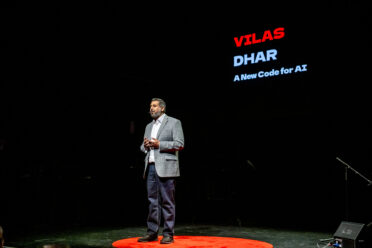Launch of AI-powered journal offers new model for academic publishing
BOSTON – A new partnership between The MIT Press, the University of California Berkeley and the Patrick J. McGovern Foundation has created a first-of-its kind, digitally enabled academic journal that quickly, rigorously and transparently reviews COVID-19 research.
The new journal, Rapid Reviews: COVID-19 (RR:C19), offers an innovative solution to immediate and longstanding challenges in academic publishing. “With this journal, we are rethinking the traditional model of academic publishing,” said MIT Press Director Amy Brand. “The project aims to provide a proof-of-concept for new models of peer-review and rapid publishing for broader applications.”
As an open-access overlay journal, RR:C19 is positioned between the open, unreviewed publishing platforms known as preprint repositories and traditional peer reviewed academic journals. The urgency to produce COVID-19 research has resulted in more than 20,000 manuscripts on public pre-print servers. Many of these papers have attracted considerable attention with the press, policymakers and health officials; however, these papers are not vetted by peer review for accuracy.
This is where RR:C19 steps in.
Using unique AI tools developed by COVIDScholar, an initiative of UC Berkeley and the Lawrence Berkeley National Lab, RR:C19 scans hundreds of preprints a week to identify promising manuscripts. The papers are then sent for accelerated review by the journal’s expert, international editorial team led by Editor Stefano M. Bertozzi, UC Berkeley Professor of Health Policy and Management and Dean Emeritus of the School of Public Health.
Typical peer review can take months. RR:C19 will complete the process and post reviews of the preprints in days, limiting the spread of misinformation about COVID-19. Paper authors can then post a response to the reviews, and even edit and repost their manuscript, in a more participatory and collaborative process. Manuscript authors are still free to submit their papers to any journal.
The technology and process innovations of RR:C-19, along with the philanthropy partnership, all point to new ways of approaching academic publishing, said Patrick J. McGovern Foundation President Vilas Dhar.
“At the Patrick J. McGovern Foundation, we’re broadly interested in creating more timely, open and inclusive access to science,” said Trustee Vilas Dhar. “This project demonstrates how philanthropy can catalyze a transformation in the field of academic publishing that leads to greater public good.”


